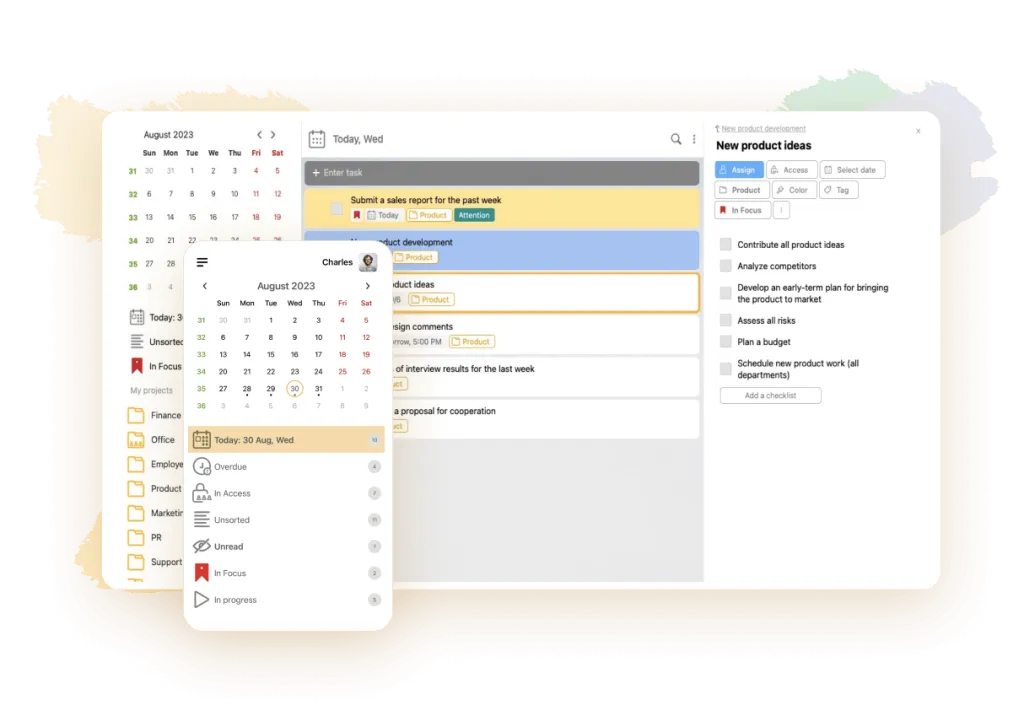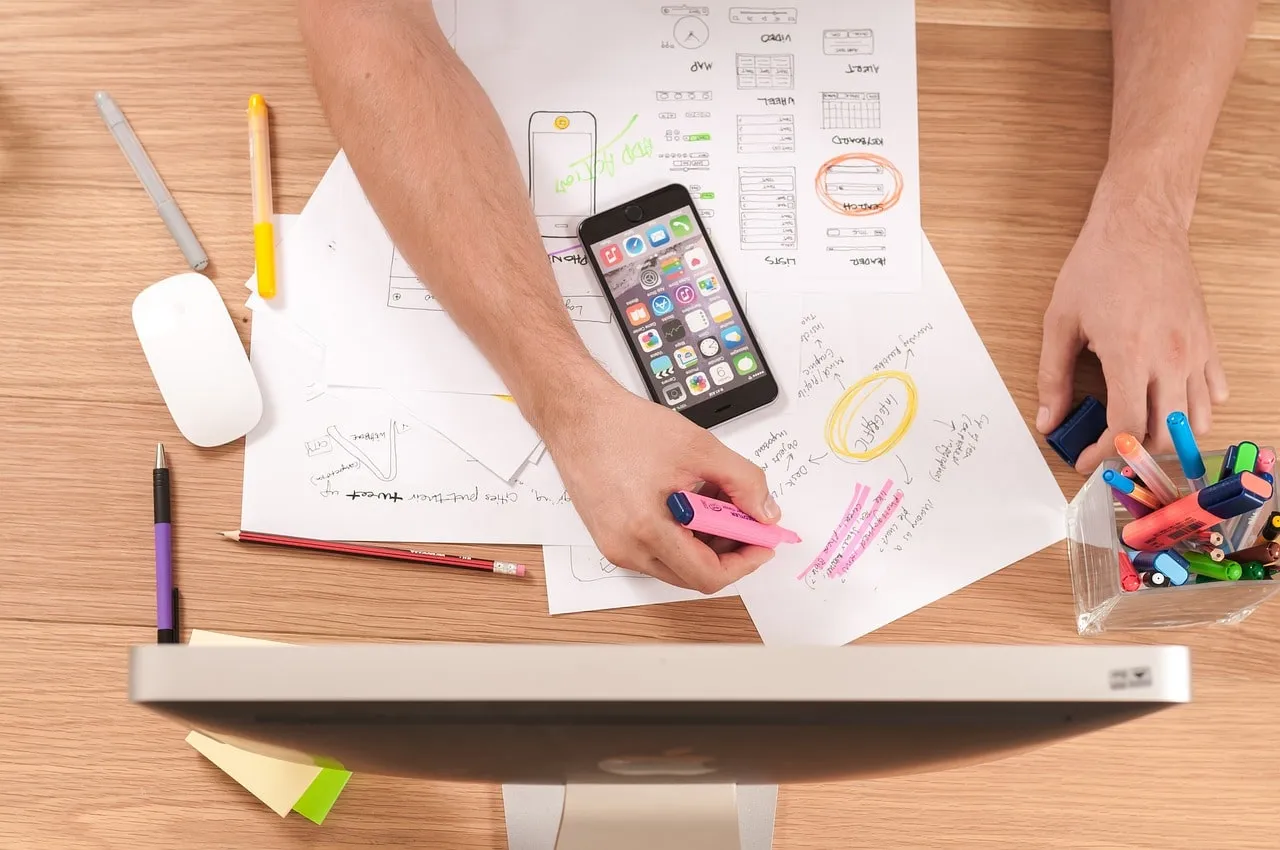
Ted Scott
March 5, 2024
The life of modern man resembles an endless race with obstacles. If you hesitate, stop and you are out of luck. There are bound to be more organized, productive people ahead, who will do the job faster and better than you. In order not to be confused, not to get lost in such an intense rhythm of life, it is important to learn how to accurately and competently manage the most valuable resource - time. Without it, it is impossible to build a successful career, achieve high results, and become an effective manager.
Today we are going to talk about how to manage everything, do more in a shorter time and get less tired, combine pleasant and useful. How to carefully plan your work schedule so that there is time for studying, hobbies and socializing with loved ones. To do this, we will use popular techniques, tools, and some interesting time-management gurus and experts.
Why you can’t keep up with everything
There are many reasons that prevent you from becoming more successful in work and life. The most common ones are:
-
“Multitasking Mode”. A modern manager should constantly try to improve his knowledge level, keep abreast of new trends in business and management, monitor competitors’ activities and pay close attention to the needs of his team members. This requires enormous effort and great dedication, negatively affects the general emotional background, health, and usually leads to rapid burnout.
-
Distraction by “empty”, useless activities. This includes internet surfing, reading magazines and books during working hours, watching news on your smartphone, “hanging out” on social networks, computer games, TV series and TV shows.
-
Natural laziness. Some psychologists say that laziness does not exist, but this quality is characteristic of all people. Therefore, you should not be particularly upset about the fact that from time to time you want to relax. As a rule, we are lazy because of fatigue or lack of adequate motivation to perform active actions. But if this desire turns into a way of life, interfering with performance, you need to take appropriate measures.
-
Low productivity. Inefficient employees stretch simple tasks that can be safely completed within an hour into the entire workday. With such efficiency, it is difficult to achieve positive results.
-
Lack of strength and energy. This phenomenon is associated with a sedentary lifestyle, poor nutrition, lack of physical activity.
Understanding what shortcomings to get rid of, what to optimize, what to strive for, let’s try to figure out how to manage everything and not get tired.
Where to start
People who constantly complain that they do not have time for anything, do not know how or do not want to properly manage their time, believing that it is difficult and impossible. In fact, it is possible to manage this valuable strategic resource rationally, and absolutely everyone can do it, using practical step-by-step instructions and principles of time management.
Time management is a set of effective technologies and tools for planning and time management. With their help you can effectively organize your work processes, get rid of unnecessary fuss, overload and related stress. This discipline teaches how to find approaches to time optimization, how to work and live right “here and now”, optimally distributing the load by hours and days of the week in the right order.
If you want to feel relief and figure out how to keep up with everything and live life to the fullest, when making plans try to follow the main principle of time management: measure your time not in days and hours, but in actions and events. This approach will help you improve your quality of life and give you an understanding of how to build your schedule for your personal benefit.
Formation of healthy habits
A successful person knows the value of time, knows how to discipline and organize himself. In order to get rid of laziness and procrastination and easily accomplish all the planned tasks during the day, it is important to develop useful habits:
Get up earlier
Having studied the biographies of famous people, big businessmen, we can conclude that all of them by nature are “larks”, that is, they go to bed early and wake up early in the morning. This is not surprising, because most of us have a peak of productivity falls precisely on the morning hours. It is worth planning serious work for this period more often. From a quality start in the morning, largely depends on the success and productivity of the coming day. And the whole life.
To improve efficiency, it is not enough to set your alarm clock for 6:00 am. It is important to spend this part of the day wisely and usefully. That is, devote it to meditation, planning or reading. Even if early rising is not part of your home routine, try to get up at least a few minutes earlier than usual. After a week, increase this interval even more, and so on. After a couple of months, you will be able to increase this interval much more and you will be able to easily wake up an hour earlier to spend this time rationally and efficiently.
Keep your work and life in order
It is impossible to feel organized and successful in chaos. You will never have enough time to complete important tasks by clearing the “rubble” of documents, records or files stored in your computer. Maintaining order in the workplace, on your personal computer, in your home, in your car, has a positive effect on your psyche, disciplines you, and teaches you self-organization. These skills will help you achieve better results at work and in life. Keeping things in order will be much easier if you adhere to the following tips:
-
Get rid of everything unnecessary.
-
Allocate a separate place for each item.
-
Get in the habit of putting it in there every time you use it.
-
Stop cluttering your home and office with trifles, unnecessary “bling” bought at sales. On the weekend, when you have a lot of free time, clean the house, for example, by washing dishes.
-
Learn to consume sustainably.
By properly organizing the space you’re in, you’ll have a couple of hours to do the really important things.
Plan every day
You will be surprised, but many people of the past centuries, such as artists, writers, scientists, who lived several centuries ago, started their mornings by creating to-do lists, and in the evening they summarized their work. Properly planning your time, you will clearly see how to manage to do everything in a day. Having a complete picture of the day in front of you, you will be able to focus on the main tasks. Thanks to the to-do list, relieve your brain of unnecessary information. After all, it is very difficult in a huge number of daily tasks, not to lose sight of something really important.
By gradually crossing off completed tasks from your list, you will get to know the pleasant feeling of self-sufficiency. You will realize that you have spent the day productively and usefully. The main thing is not to overestimate your own capabilities and not to turn the plan into a list of continuously changing tasks. It is enough to solve two to three key issues that need to be completed during the day. When the skill is fully mastered, the number of tasks can be gradually increased.
Eliminate the chronophages
Once you calculate how much time you spend on useless activities, such as watching TV, social networks, the Internet, talking “about nothing”, you would be surprised and shocked. Ah, these ruthless “time eaters” methodically take away from you a huge amount of precious time. Therefore, you can and should get rid of them.
If your list still has uncompleted tasks, you should not be distracted by empty tasks. Analyze the items on your list. Determine what you can do right here and now. Only after all the items are marked as completed, then the rest of the time you can relax and reward yourself with a well-deserved vacation.
Complete tasks in a timely manner
Problems that are not solved in time accumulate like a snowball. Therefore, they should be dealt with as they come. Your car has broken down - plan a visit to a service station in the near future. You need a scheduled medical examination - be sure to set the task of visiting a polyclinic in the plan. This will save you from the need to perform several important things at the same time.
Planning and prioritization

Human capabilities are not limitless. Everyone has his own limit, which is not reasonable and not right to exceed if you want to keep your strength and health for many years. That is why it is better to do complicated, serious things first. If you start the day with trifles, you will simply not find the strength and time for global, important tasks. They will have to be postponed “for tomorrow”. And the next day there will still be distracting situations that prevent them from being completed successfully.
To avoid this, you should divide the tasks on your to-do list by complexity. The larger ones should be started in the morning or before lunch so that they can be completed before the end of working hours. You can use the famous Eisenhower matrix, which is a table of four boxes, to divide things by importance and priority. It will look like this:
| Urgent | Not urgent | |
|---|---|---|
| It’s important | I | II |
| It doesn’t matter | III | IV |
-
Box I includes urgent and important matters. Do them first.
-
In column II, write down important but not urgent tasks. These are done when key issues are closed.
-
Item III includes urgent but not essential matters. These are dealt with as far as possible and necessary.
-
Well, the tasks from column IV, which are not urgent and not important, are postponed “until better times”.
In order to achieve better results with less effort, it is worth following the following golden principles:
-
Set clear and realistic goals for yourself. They should be challenging and ambitious enough. Visualize your dream and write its content in a plan. Focus on the main thing. Spreading between desires, you will not achieve a positive result. If there are difficulties in achieving your goal, do not give up on it immediately, look for other ways.
-
Practice task decomposition. That is, divide large tasks into smaller and more understandable ones. Each successfully completed step should bring you closer to the main goal. The larger the task - the farther it should be located in the general tree of goals. Small, intermediate tasks should be planned daily, at the end of the working day. This will make it easier to “get into work” in the morning. You will simply sit down at your workplace and start doing what you have planned. As a result, you won’t need to keep unnecessary information in your head. Seeing in front of you the current tasks for the day, you will progressively solve them, one by one, without distracting on secondary issues. This will allow you to complete your work more quickly and efficiently.
-
Avoid multitasking. The ability to do several things at once is a myth. With this approach to business there is always a risk of missing out on something important. In addition, according to research by scientists at the University of London, simultaneous work on several single-valued tasks leads to a critical drop in IQ. Then the quality of their fulfillment is out of the question. Therefore, we choose three key tasks for the day and make maximum effort to accomplish them.
Simple rules for organizing time

Time management has developed special models and methods that help to organize work with tasks competently and make planning effective. We will familiarize you with some of them:
The “five-minute rule”
Short things that take little time, require little effort and need to be done immediately. Do you need to make a dental appointment? You don’t need to put this item on your daily schedule. Pick up the phone and make an appointment.
90 by 30 method
According to this methodology, developed by American journalist Tony Schwartz, you should start your morning by identifying a more difficult task and completing it immediately. Work on it for 90 minutes. Then allocate 30 minutes for rest, which should be of the highest quality and full.
Pomodoro technique
Francesco Cirillo’s method suggests his best way of working with task lists. They should also be graded from the most important to the least important. The author divides working time into 30-minute segments, “tomatoes”, which include 25 minutes of active work on the task and a 5-minute break for rest. The performed tasks should be marked with a cross after each “tomato”. After four approaches, you should take a break for 15-30 minutes.
Helpful Lifehacks to Increase Productivity
There are many secrets and approaches to planning and improving self-organization. We offer a simple checklist that will suit absolutely everyone:
-
Keep a written record of all to-do’s and tasks. You can use a notebook, paper post-it notes or a modern digital app. Recorded thoughts and other information will not be lost or forgotten.
-
Evaluate your effectiveness in a way that is convenient for you. Don’t be lazy to check your plan every day, week or month and evaluate how successfully you have accomplished all the items. This will help you understand what direction to take next.
-
Set clear, understandable and measurable goals. Then it will be easier to achieve them.
-
Learn to delegate. By locking all tasks on yourself, you will make it very difficult to implement the chosen strategy. After all, you may have force majeure circumstances that prevent you from accomplishing things on time. Delegate tasks so that together with your colleagues you can cheerfully come to the desired result, and not crawl to the goal squeezed and exhausted.
-
Keep everything in order. Living in chaos is not conducive to making good decisions.
-
Learn to say no. First of all, answer yourself, your desires and “wants”. Not all dreams should be realized, taking into account the benefits, resources for achievement and efficiency.
-
Take breaks to relax, including from planning. Sometimes you can let things go and let life take its course.
How to use the LeaderTask app to keep up with everything

Structuring and organizing tasks is an important skill that you can’t do without in today’s world. For those who value every minute of their time and strive to use it efficiently and rationally, the LeaderTask electronic planner will be an excellent assistant. In the application you can make lists of cases, tasks, break them down into smaller subtasks. Distribute them by importance, priority and deadlines. Track the fulfillment of each step on a convenient kanban board or diagram. Delegate tasks to subordinates and colleagues.
The functionality of the program includes a system of “intelligent” notifications, implemented as pop-up windows, notifying about new assignments or changes in tasks. The scheduler supports all major time management techniques and tools, including Pomodoro, GTD, Kanban and other Agile methods. Works on all digital platforms offline, without internet.
Conclusion
To keep up with everything, live life to the fullest and be successful, cultivate healthy habits. Be disciplined to fight procrastination and chronophagy. Remove idle clutter and meaningless activities from your life. Make it a habit to record all tasks and to-do’s in writing with a mandatory note of the degree of completion. Set yourself proper, realistically achievable goals. Break them down into stages to make them easier to achieve. Eat right, get plenty of rest and keep a regular daily routine.







